The ancient Chinese spoke about the importance of the gut and it’s impact on health over 2,000 years ago.
However, it’s only recently that the scientific community has come to grips with how right they were.
It‘s since been shown that an unhealthy gut contributes to a wide range of problems from fatigue to autoimmune problems.
In fact, it wasn’t long ago that people laughed at the profession of Chinese medicine for explaining how the health of our gut contributes to chronic diseases.
However, scientists now believe intestinal health is one of the most important transitions in medicine.
In this easy to digest article, we’ll cover some of the important factors contributing to gut health.
The Protective Gut Wall
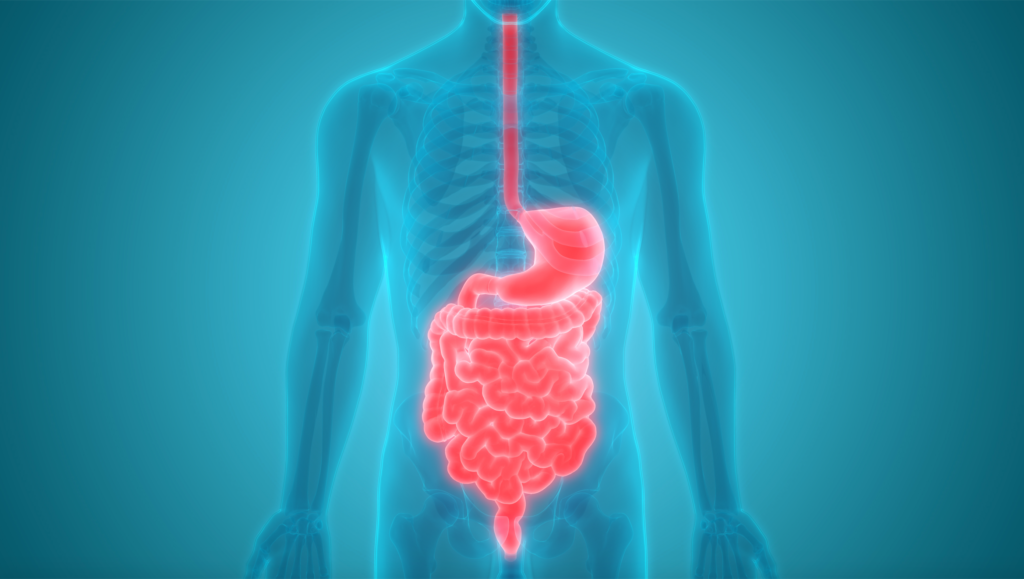
It’s the intestinal wall that helps protect our blood stream from harmful food toxins and chemicals that enter our body via food and the external environment.
In fact, we literally have a hollow tube running all the way down our body from the mouth to the anus (as seen in the picture above).
This means that anything inside this tube is technically still outside of our body.
So, anything that enters our mouth and isn’t absorbed through the tube into the blood stream is taken to the other end, without ever entering our bloodstream.
What If The Wall Leaks?
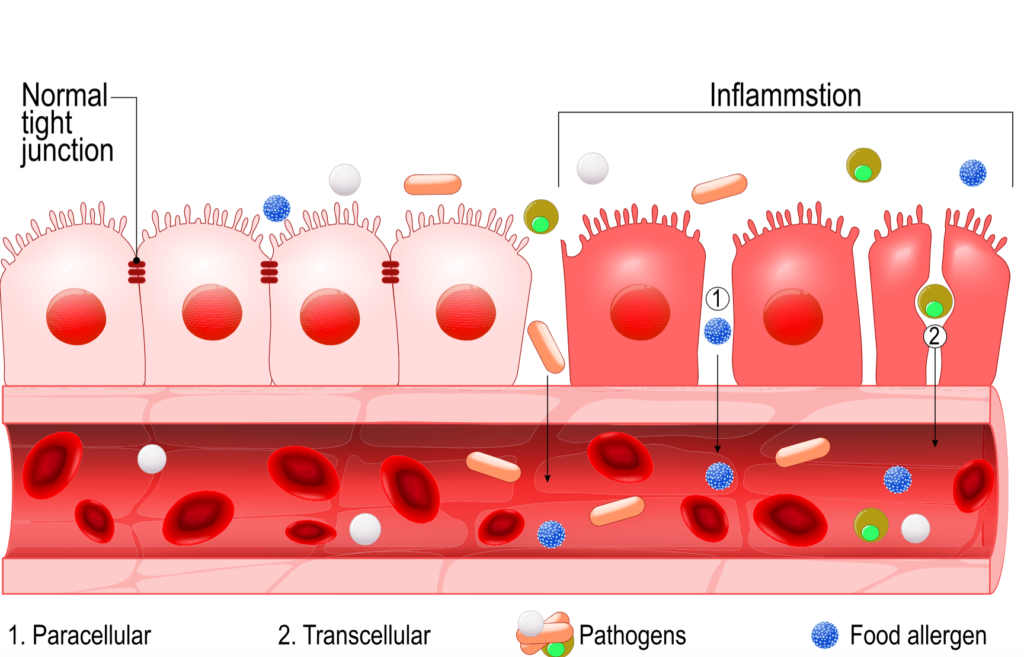
A variety of problems raise their head when this protective tube becomes damaged.
It’s called a leaky gut.
The reason it leads to problems is because a leaky tube/wall allows entry of foreign substances and large proteins into our bloodstream (which shouldn’t be there).
When large proteins leak through this damaged wall and into the bloodstream, it alerts our immune system.
Next, our immune system recognizes these proteins as dangerous foreign invaders and mounts an attack against them.
The problem in a variety of circumstances, is the immune system doesn’t just attack the proteins that leak into the bloodstream, but anything that looks like them.
This includes our own bodies issues! Such as: thyroid, skin, liver, kidney and brain tissue!
This is what happens in many autoimmune diseases.
Gut Health & Autoimmune Reactions
It’s been shown that the lack of integrity of our gut wall plays a major role in the development of autoimmune diseases.
It also determines whether we tolerate or react to certain substances from food and our environment!
It’s the passing through the intestinal wall by food toxins like gluten and chemicals like BPA (which shouldn’t be there) that trigger an immune reaction.
This affects the gut, but also thyroid tissue, the pancreas, kidney, liver and the brain.
In fact, we don’t have to have gut symptoms at all. Instead it can manifest as problems such as:
- Psoriasis
- Eczema
- Allergies and asthma
- Heart failure
- Hashimoto’s
- Rheumatoid arthritis
- Mental illness
- Autism spectrum disorder
- Depression
- Metabolic disorders like diabetes and obesity
A New Discovery in Gut Health
To add to this, researchers recently found a protein called zonulin that increases the access in which proteins and toxins pass through the gut wall and into the blood stream.
Researchers found that many, if not all autoimmune diseases: including celiac disease, multiple-sclerosis, rheumatoid arthritis and IBS are characterised by high levels of zonulin and a leaking gut!
There was even a study that found kids with ADHD had higher levels of zonulin in their blood than control groups.
This adds to the evidence linking a leaky gut and to behavioural disorders like ADHD, autism and others.
What else can cause a leaking gut?
- Poor diet (gluten and processed foods)
- Chronic long term stress
- hormone imbalances
- Infections
- Antibiotics, NSAIDs, steroids, antacids
The Importance of Gut Micro-Flora
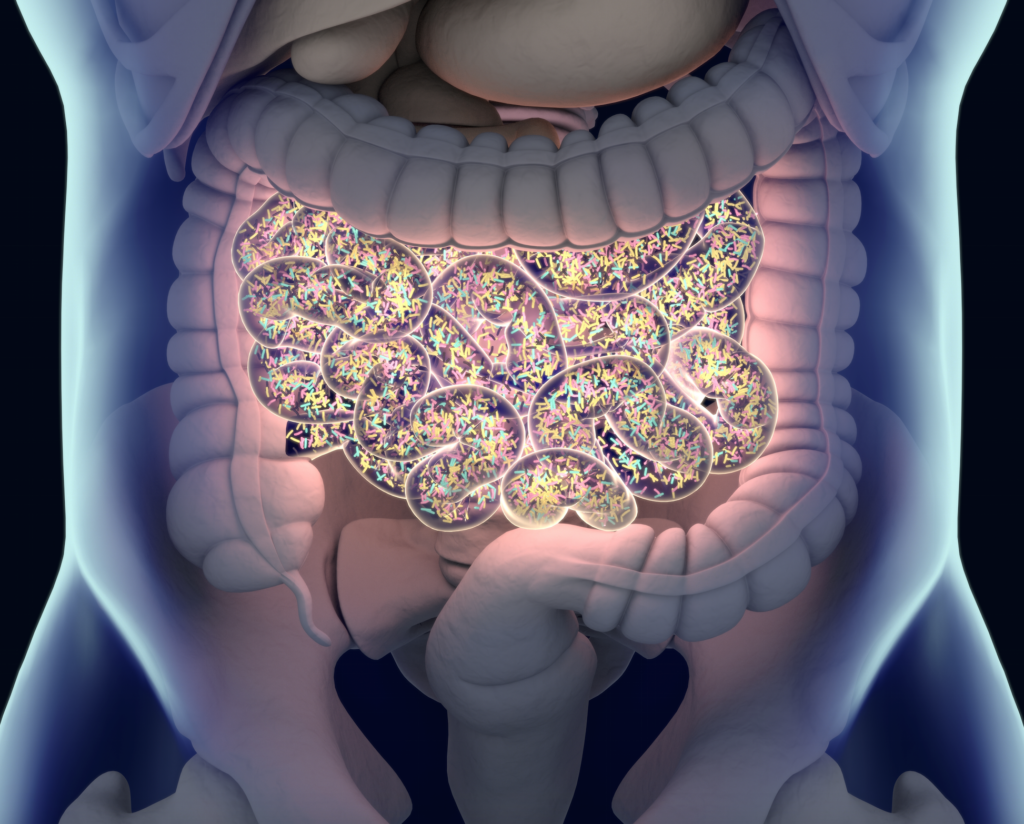
To put a number on it, our gut has over 100 trillion microorganisms!
The micro-flora aids digestion, resistance against infection, regulates metabolism and contains up to 70% of our immune system.
Factors that impair microflora include:
- Antibiotics
- Birth control pills
- NSAIDs
- Refined carbs pastas, sugar, processed food,
- Diets low in fermentable fibres,
- Toxins like wheat, industrial seed oils
- Chronic stress
- Long term infections.
Most people know anti-biotic drugs are harmful to micro-flora. However most people don’t understand the consequences.
Research shows antibiotics cause profound loss of diversity to the micro-flora and change the entire make up of our gut.
The problem is our diversity of gut microflora doesn’t recover on its own after antibiotic use.
Our Gut Runs Like An Engine
The different functions of the gut are interdependent on each other.
This means if you’ve got a leaking gut, you’ve probably also got bad gut micro-flora.
When both gut micro-flora and the gut barrier are damaged, inflammation comes next (which is what may lead to autoimmune diseases).
To address this, we have to rebuild the micro-flora and restore the integrity of the intestinal wall.
It’s also true if you want to be the healthiest version of yourself.
If you’ve been exposed to factors that contribute to an unhealthy gut, there are steps to restore rebuild the gut again.
7 Steps To Aid Gut Health
These have worked well for my patients, however, before applying any of these, seek approval of your health practitioner.
Step 1: Follow a Gut Friendly Diet!
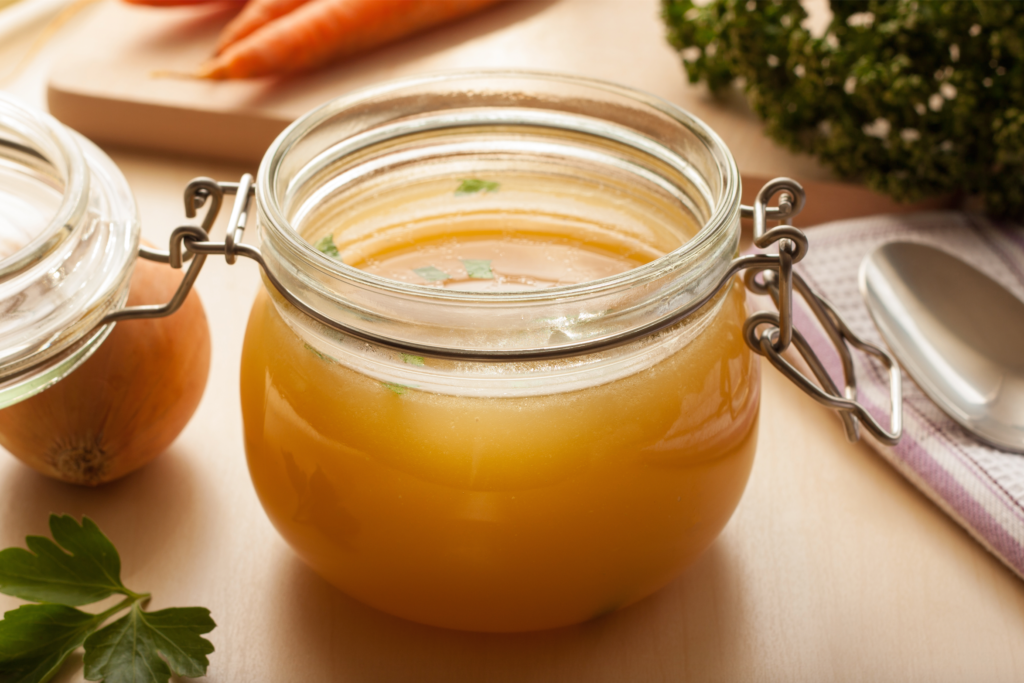
Eat in such a way to heal the gut and reduce inflammation.
When working with patients, I have found a combination of two diets work the best:
The GAPS and FODMAPS diet
1. The GAPS is an anti-inflammatory diet. I’ve seen remarkable results using this for autoimmune diseases, high thyroid antibodies and Dercums disease.
2. Don’t eat too much fruit
3. Try a low-FODMAP diet. FODMAPs are types of carbohydrates that are poorly digested by some people. Eliminating them can quickly reduce gas, bloating, abdominal pain and regulate the stools
However, it’s possible that a small percentage of people feel digestive discomfort when switching to a gut friendly diet. There are three reasons for this:
Those who have digestive issues on a gut friendly diet also had them before. However, may have compensated by:
- Restricting meat (if they have low stomach acid)
- Limiting fibrous vegetables and fruits if there’s intestinal inflammation.
This doesn’t mean the diet they were on was more gut-friendly; the symptoms were managed, but the underlying problem wasn’t being addressed.
Step 2 Restore Stomach Acid
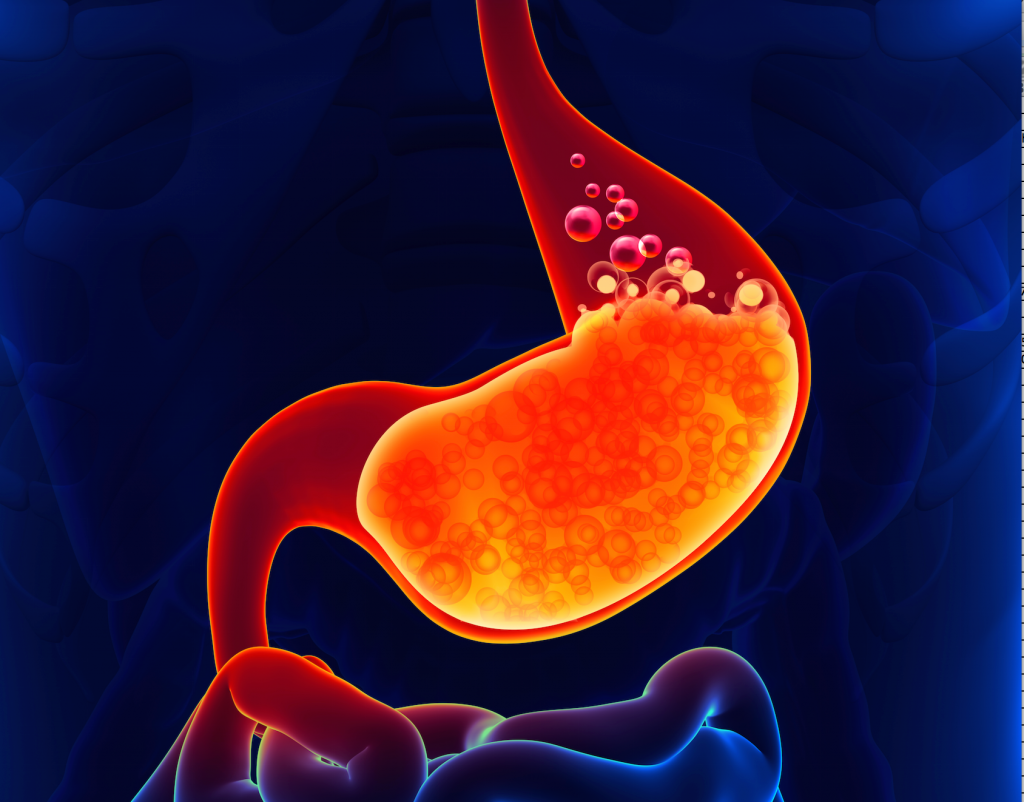
Contrary to popular belief, most people don’t have enough stomach acid (HCL).
We need acid in our stomach in order to digest, breakdown and absorb nutrients.
In fact, it’s a vital substance for our overall gut health.
If there’s not enough, many chemical reactions required to absorb nutrients become impaired.
For example when we eat, the secretion of stomach acid triggers the production of pepsin (an enzyme we need to digest protein).
This means undigested proteins linger in the gut and lead to gas, bloating and heartburn.
This is why some patients that start a gut health diet (with more protein) experience symptoms.
Low stomach acid also slows the digestion of carbs because acid breaks down and absorbs carbs by stimulating the release of enzymes from the pancreas into the small intestine.
If the pH of the stomach is high (because of low stomach acid), pancreatic enzymes won’t be released.
This leads to undigested carbs, provoking an overgrowth of bacteria in the small intestine, increased gas and reflux.
There are a number of causes of low stomach acid such as H. pylori (suppresses stomach acid as a survival strategy), over use of acid suppressing drugs, chronic stress, and age.
The consequences of low stomach acid are serious:
- Reduced nutrient absorption
- Bacterial overgrowth
- Increased susceptibility to infection
- A higher risk of gastric cancer.
How to restore stomach acid?
In order to treat the root cause, a hydrochloric acid (HCL) supplement combined with pepsin or acid stable protease will re-start the body’s acid production and support enzyme secretion.
But before you do, you can do a simple test.
Have a glass of water with some apple cider vinegar, if the apple cider vinegar feels fine, then you won’t have an issue with a HCL supplement.
As long as you don’t have a stomach ulcer or are taking strong anti inflammatory medication, you can start with one capsule with each meal.
If there’s no mild burning feeing, you may increase to two per meal. If still no mild burning feeling, take three capsules per meal.
Step 3 Aid Digestion With Herbs
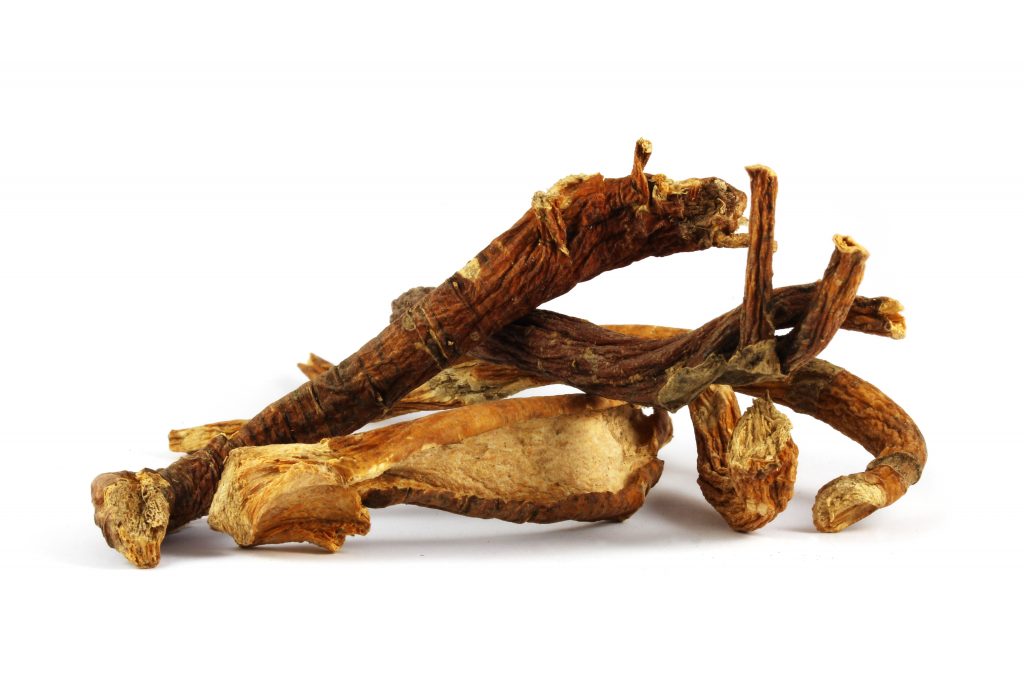
Another way to stimulate acid in the stomach is taking bitter herbs to stimulate digestion.
Bitter herbs increase the flow of digestive juices, including HCL, bile, pepsin, gastrin and pancreatic enzymes.
The following are used in Chinese medicine:
- Dandelion (Pu Gong Ying)
- Gentian root (Long Dan Cao)
- Huang Qin (Skullcap root)
- Ginger (Gan Jiang)
- Goldenseal root (Bai Mao Liang)
- Peppermint (Bo He)
- Wormwood (Qing Hao)
- Wu Yao
Step 4 Increase Digestive Enzymes
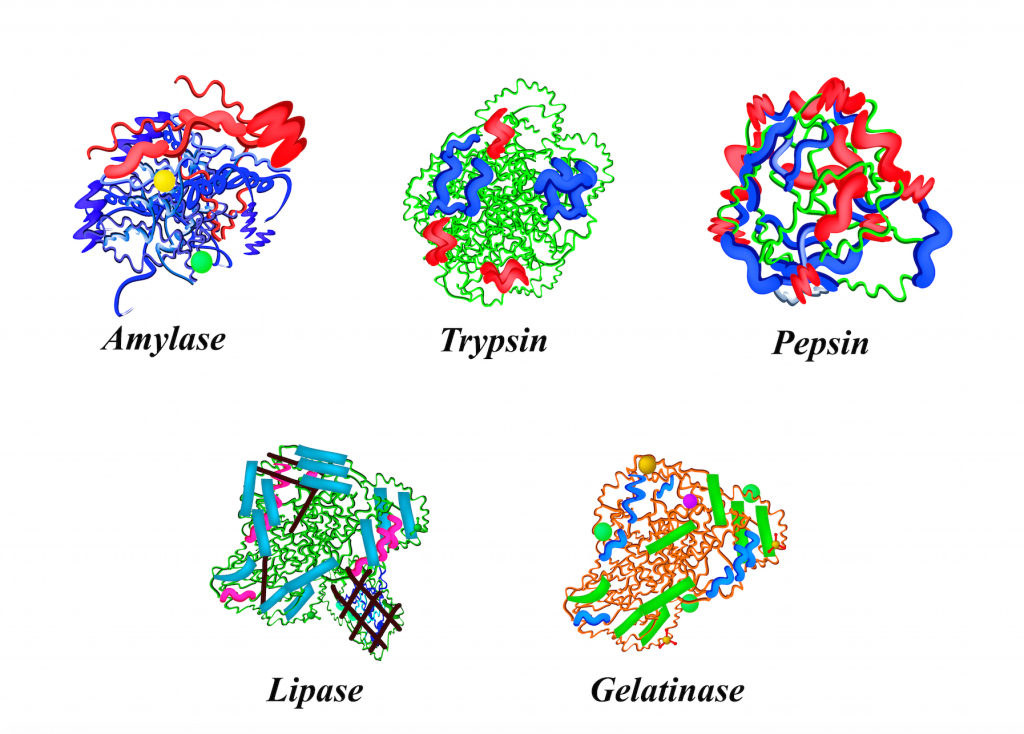
One way is to take a digestive enzyme supplement.
However, the most important step in aiding enzyme production is restoring stomach acid (Step two).
Digestive enzymes break down large molecules into small molecules so they can be absorbed across the gut wall into the bloodstream.
They’re in our saliva, stomach, small intestine and classed according to food they break down.
If enzyme production is insufficient, we won’t break down or absorb protein, fat or carbs well.
The cause of a lack of enzyme production is low stomach acid, age and a diet high in processed food.
The problem with processed food is that they don’t contain their own enzymes.
This means our body reaches into it’s own pockets and uses it’s (limited) supply of enzymes to break it down. Eventually this supply runs low.
In contrast, fresh organic foods contain their own enzymes, which spare our own for another day.
If a diet is low in a number of micronutrients (B12, iron & zinc, or magnesium, selenium, vitamin C) or if you’re not absorbing them properly due to low stomach acid, enzyme production will be impaired.
Ensure you’re getting enough micronutrients in the diet including B12, iron & zinc, magnesium, selenium, and vitamin C in order to support digestive enzyme function.
Take a digestive supplement.
A variety of brands add many of them together in one supplement including Thorne Research’s BioGest.
As with HCL, you’ll only need to take them until you’ve addressed the underlying issues.
Step 5 Decrease Inflammation
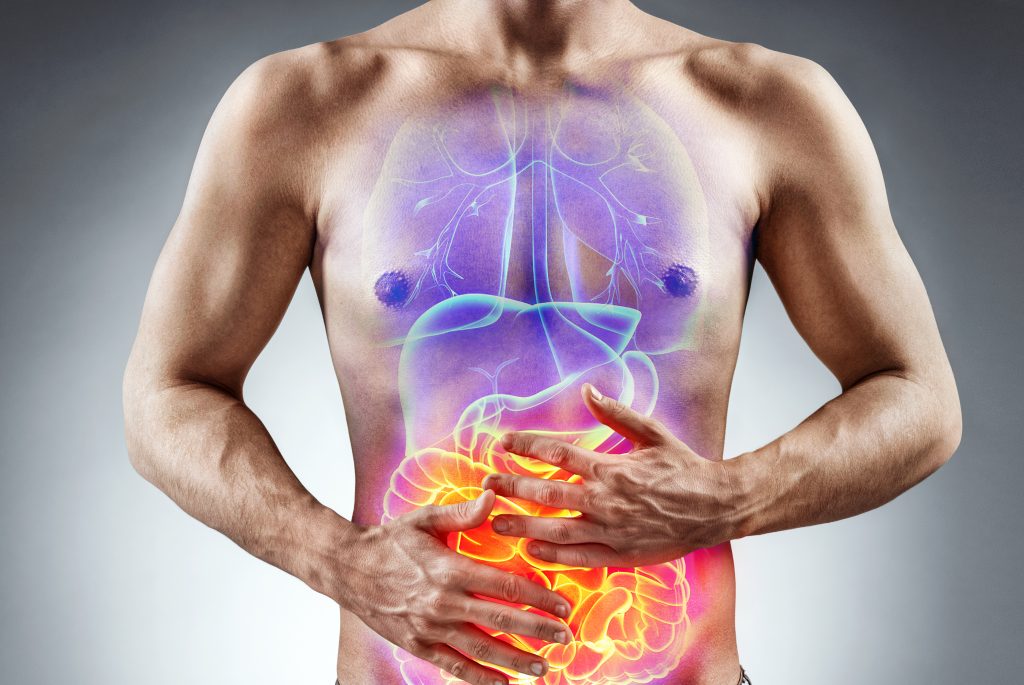
Inflammation is a beneficial part of the body’s response to harmful pathogens and damaged cells.
It’s a crucial function of our body’s immune system. In fact, we wouldn’t live long without the body’s ability to create inflammation.
It’s when inflammation doesn’t go away that it becomes a problem. So much so, it can be detrimental to the health of our gut.
Chronic inflammation in the gut can lead to constipation, diarrhoea, gas, bloating, abdominal pain, as well as symptoms like skin rashes, muscle and joint pain and depression.
One reason inflammation causes people to struggle in the beginning stages of a gut healthy diet is a sensitivity to fruit, vegetables, nuts and seeds.
There are two types of dietary fibre: Soluble fibre that soothes the gut and insoluble fibre from fruit, veggies, nuts and seeds (which is harsh on the intestinal wall).
The most common causes of gut inflammation are.
- Gluten, sugar, refined flour & processed food
- Environmental toxins, pesticides and chemicals such as BPA
- Parasites, pathogenic bacteria and fungi
- An imbalance of good and bad bacteria
If you experience digestive issues after a few weeks of a gut healthy diet, chances are you have inflammation from one of the above.
Step 6 Resolve Chronic Dis-stress

Find ways to manage chronic stress.
One study in 2017 in mice found that exposure to dis-stress compromised their gut micro-flora in the same way a poor diet did.
Step 7 Add Fermented Foods
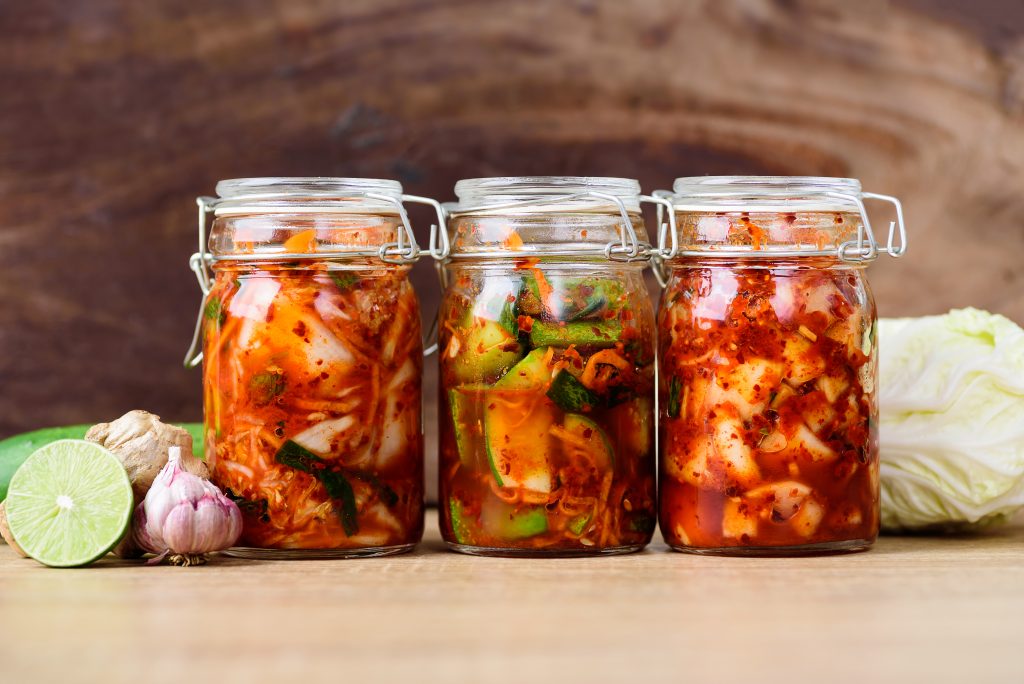
Slowly start to add fermented foods like kimchi, or kefir because they’re rich in enzymes,
There you have it. Comment below if you liked or loathed this article!
About The Author

David is a registered Chinese medicine practitioner and has written a number of eBooks including The Pocketbook guide to Chinese medicine.
For more content, connect with David on Facebook and Instagram
If you got value from this article, please share this content with your friends and family
